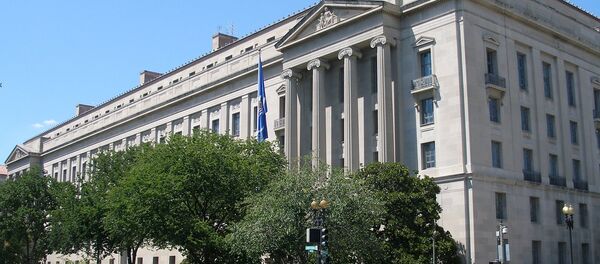Founded in 1997, the Michigan Jewish Institute prides itself on providing "excellent academic baccalaureate and other degree granting programs" to its students.
The only problem: that academic track record has been less than stellar. Over 2,000 students are currently enrolled with the institute, yet, in 2011, MJI handed out only three bachelor’s degrees. That figure seems to be at odds with the fact that the college has received an increase in federal funding – nearly $25 million – in the last five years.
While the FBI has declined to comment on the specifics of its case at this time, these kinds of glaring contradictions could account for the raid which occurred Tuesday morning on the Michigan campus.
Eyewitnesses, speaking to Haaretz, described 15 federal agents corralling staff into a conference room to gather personal information. Investigators then loaded several boxes from the institute’s office onto trucks.
MJI’s financial records are certainly cause for suspicion. The $25 million was received from the US Federal Pell Grant Program, intended to aid some of America’s poorest students. The college’s assets also ballooned to $4.6 million dollars in 2013, a massive increase from $1.2 million in 2008.
But there are other signs of MJI’s suspicious activity. During a brief visit to the college’s main campus in West Bloomfield, a suburb of Detroit, one would be hard-pressed to find any sign of student life. Most of MJI’s student body study in Israel.
Because the students are still US citizens, each brings in $5,730 from the Pell Grant, plus a $2,500 administrative fee for the study-abroad program, plus ordinary tuition.
In 2012, only 40% of MJI freshman returned for their sophomore year, and the college only handed out 20 bachelor degrees.
Despite the fact that West Bloomfield campus is a relative ghost town, MJI is spending millions on construction projects. The few classes that are run on campus occur in The Shul, a $6 million synagogue. The institute has already received permission from the township to build a new 16,000 square-foot building.
That space would house six additional classrooms.
That’s if the school can manage to hold onto its accreditation. Last year, in a rare move, the Accrediting Council for Independent Colleges and Schools deferred its decision for renewal three times. According to Anthony Bieda, a spokesman for the council, those delays were related to "compliance with our standards and expectations."
A federal fraud investigation will likely weigh heavily on future decisions about MJI’s legitimacy.





